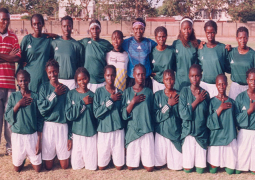A workshop on Project Design and Implementation for the Enhanced Integrated Framework (ELF) began yesterday at the Ocean Bay Hotel in Bakau. The forum was organised by the Ministry of Trade, Regional Integration and Employment in association with Executive Training and Consulting.
In his opening speech, Yusupha A. Kah, Minister of Trade, Regional Integration and Employment, said the ELF is a result of a process. "Initially, the Integrated Framework (IF) was established to support LDC governments in trade capacity building and integrating trade issues in overall national development strategies," he said.
However, Minister Kah added that multilateral agencies, least developed countries (LDCs) and other development partners combined their efforts to respond to the trade development needs of the least developed countries (LDCs) so that they can become active players and beneficiaries of the multilateral trading system.
"Due to the modest achievements and benefits of the IF by LDCs in its early years, 1996-2000, the IF was revamped and then enhanced to improve its effectiveness, hence the Enhanced Integrated Framework (ELF)."
According to Minister Kah, The Gambia was one of the 27 LDCs that have completed the Diagnostic Trade Integration Studies (DTIS) and among the eleven that are currently implementing the DTIS Action Matrix.
"You may recall that the Gambia Diagnostic Trade Integration Study (DTIS) and its key recommendations (Priority Action Matrix) were validated by stakeholders in July 2007 and endorsed by cabinet in August 2007.
"This paved the way for The Gambia to be eligible for ELF funding of Tier 2 projects," he added.
Minister Kah went on to explain that the present programme aims at building the institutional capacity of his ministry, the national implementation unit and other sectors on trade related issues, as well as on project design, appraisal, monitoring and implementation.
"It should be noted that the proposed Tier 2 projects to be funded from the EIF Trust Funds should be part of the DTIS Action Matrix, and should be strategically selected to complement existing projects or fill gaps, or to leverage resources" he added.
Ms. Naffie Barry, Permanent Secretary, ministry of Trade, Regional Integration and Employment, noted that a national implementation unit was set up at her Ministry to assist the implementation of the ELF programme.
She added that: "the setting up of the unit was a response to the Elf board's approval of the implementation of a Diagnostic Trade Integration Study (DTIS) presented by the ministry of Trade, Industry and Employment in 2007," she said.
She added that the DTIS sought to identify and evaluate internal and external constraints of sectors that have greatest export potential, including the Action Matrix for better integration of the country into the world economy.
Permanent Secretary Barry further revealed that the ELF is a multi-donor funded effort through bilateral and multilateral development partners such as the International Monetary Fund, World Bank, International Trade Center, United Nations Development Programme, United Nations Conference on Trade and Development and the World Trade Organization as core agencies.



